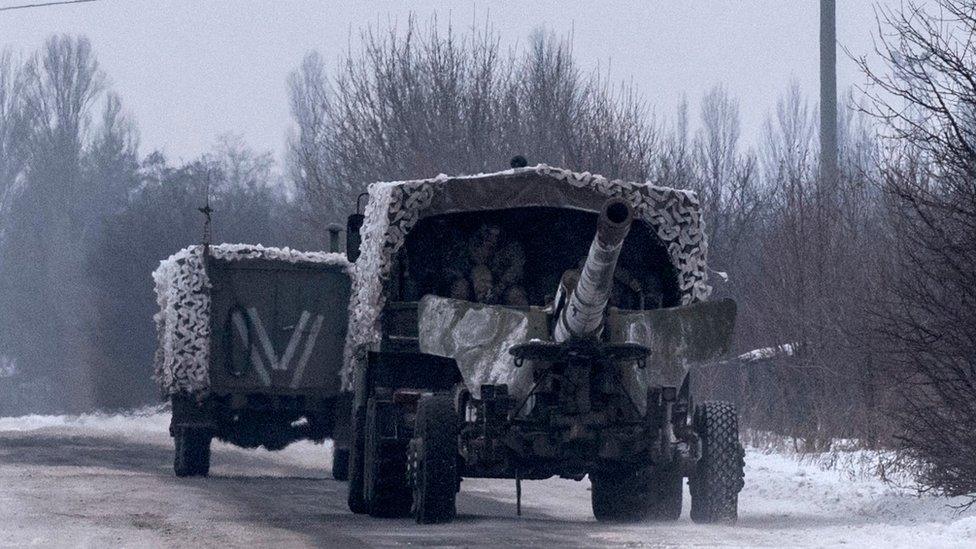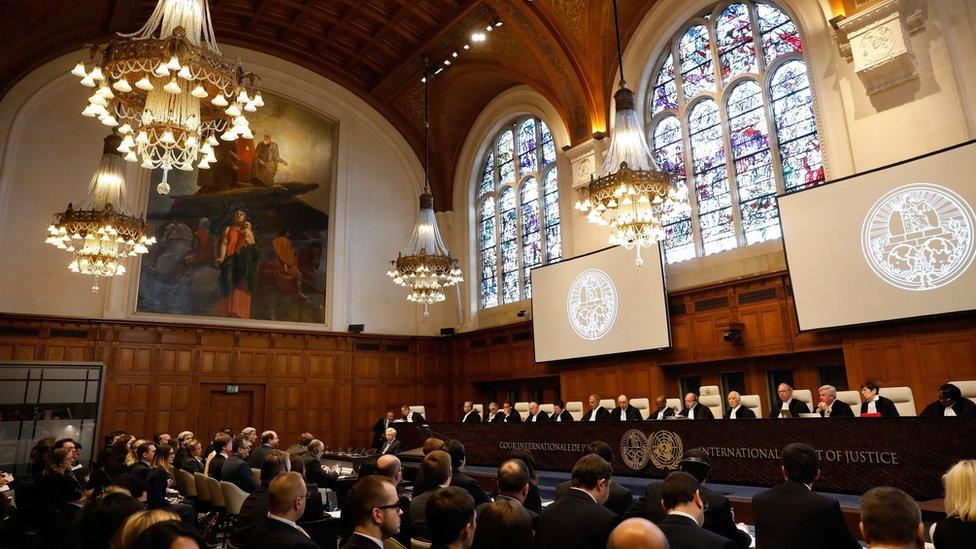Ukraine conflict: Russia accused of terrorism and discrimination at ICJ
- Published

There has been an upsurge in fighting in eastern Ukraine
The International Court of Justice in The Hague is hearing a case brought by Ukraine against Russia, accusing Moscow of illegally annexing Crimea and illicitly funding separatist rebels.
Ukraine is seeking compensation for what it describes as terrorist acts committed on its soil.
They include the shooting down in 2014 of Malaysia Airlines Flight MH17, which killed all 298 people on board.
Russia has repeatedly denied sending troops or weapons to eastern Ukraine.
It also denies bringing down MH17.
However the US military has said thousands of Russian troops have been operating in eastern Ukraine since the beginning of the crisis.
Dutch air accident investigators meanwhile say a Russian-made missile fired from territory held by pro-Russian rebels hit flight MH17.
Eastern Ukraine: A new, bloody chapter
MH17 plane crash in Ukraine: What we know
What is Russia's end game in Crimea?
In their opening remarks, lawyers for Ukraine have accused Russia of making it "impossible for Ukrainian citizens to feel safe anywhere in their country".
They have asked the court to issue Russia with an order to "cease and desist".
The legal action is being brought under UN anti-terrorism and anti-discrimination conventions.
Russia is expected to challenge the jurisdiction of the court, says the BBC's Anna Holligan, external in The Hague.

Ukraine has asked the ICJ to tell Russia to "cease and desist"
Ukraine says Russia is in breach of the Terrorist Financing Treaty by supporting armed groups in the self-proclaimed Donetsk People's Republic and Luhansk People's Republic, the ICJ reports in a press release, external.
It also accuses Russia of mistreating members of the Tatar ethnic group in Crimea and banning their representative organisation, the Majlis of the Crimean Tatar People, after annexing the territory, which it says is a breach of the International Convention on the Elimination of All Forms of Racial Discrimination (CERD),
Russia has said it took control of Crimea to protect ethnic Russians living there from discrimination.
There will be four days of hearings in total, with Ukraine and Russia given two each.
More than 10,000 people have lost their lives in nearly three years of conflict in eastern Ukraine.